Ditapis dengan

The Art of War
- Edisi
- Cetakan ke-1
- ISBN/ISSN
- 979-3062-51-7
- Deskripsi Fisik
- cxv + 327 hlm.; 24 cm.
- Judul Seri
- -
- No. Panggil
- 700.458 MAC a
- Edisi
- Cetakan ke-1
- ISBN/ISSN
- 979-3062-51-7
- Deskripsi Fisik
- cxv + 327 hlm.; 24 cm.
- Judul Seri
- -
- No. Panggil
- 700.458 MAC a
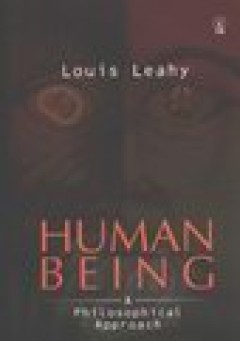
Human Being: A Philosophical Approach
Uraian ini menyajikan sintesis filosofis tentang manusia, yang tetap berdialog dengan seluruh pemikiran filosofis historis, baik kuno dan klasik maupun modern dan kontemporer, serta dengan bentuk-bentuk pemikiran lain yang dinamakan "ilmu-ilmu pengetahuan manusia" (human sciences) dan mencoba mendiskusikan problem-problem filsafat secara konkret, berdasarkan pengalaman, melalui bahasa sejelas d…
- Edisi
- -
- ISBN/ISSN
- 9789792118476
- Deskripsi Fisik
- 252 pg.; 22,5 cm.
- Judul Seri
- -
- No. Panggil
- 128 LEA h.a
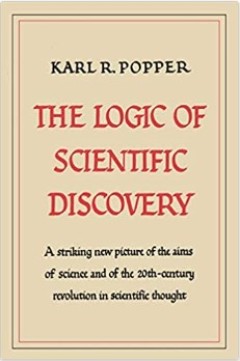
The Logic of Scientific Discovery
- Edisi
- Ninth Impression
- ISBN/ISSN
- 0-09-111720-8
- Deskripsi Fisik
- 480 pgs.; 23,5 cm.
- Judul Seri
- -
- No. Panggil
- 501.8 POP l
- Edisi
- Ninth Impression
- ISBN/ISSN
- 0-09-111720-8
- Deskripsi Fisik
- 480 pgs.; 23,5 cm.
- Judul Seri
- -
- No. Panggil
- 501.8 POP l
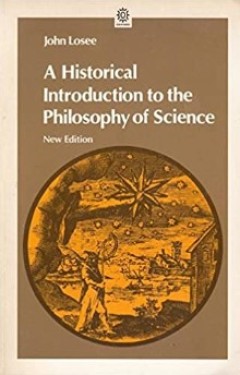
A Historical Introduction to the Philosophy of Science
This new edition brings up to date this accessible study of the philosophy of science. Since the time of Plato and Aristotle, scientists and philosophers have raised questions about the proper evaluation of scientific interpretations. A Historical Introduction to the Philosophy of Science is an exposition of differing viewpoints on issues such as the distinction between scientific inquiry and o…
- Edisi
- New Edition
- ISBN/ISSN
- 0-19-289143-X
- Deskripsi Fisik
- 248 pgs.; 19,5 cm.
- Judul Seri
- -
- No. Panggil
- 509 LOS h
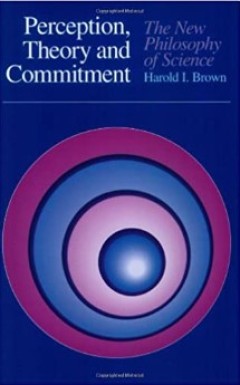
Perception, Theory and Commitment : The New Philosophy of Science
With originality and clarity, Harold Brown outlines first the logical empiricist tradition and then the more historical and process-oriented approach he calls the “new philosophy of science.” Examining the two together, he describes the very transition between them as an example of the kind of change in historical tradition with which the new philosophy of science concerns itself. �…
- Edisi
- First Published
- ISBN/ISSN
- 0-226-07618-0
- Deskripsi Fisik
- 203 pgs.; 22,5 cm.
- Judul Seri
- -
- No. Panggil
- 501 BRO p

Function, Selection and Design
- Edisi
- First Published
- ISBN/ISSN
- 0-7914-4211-X
- Deskripsi Fisik
- viii + 325 pgs.; 22,5 cm.
- Judul Seri
- -
- No. Panggil
- 501 FUN f
- Edisi
- First Published
- ISBN/ISSN
- 0-7914-4211-X
- Deskripsi Fisik
- viii + 325 pgs.; 22,5 cm.
- Judul Seri
- -
- No. Panggil
- 501 FUN f
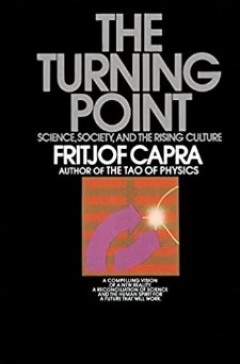
The Turning Point : Science, Society, and The Rising Culture
The dynamics underlying the major problems of our time—cancer, crime, pollution, nuclear power, inflation, the energy shortage—are all the same. We have reached a time of dramatic and potentially dangerous change, a turning point for the planet as a whole. We need a new vision of reality, one that allows the forces transforming our world to flow together as a positive movement for social ch…
- Edisi
- First Published
- ISBN/ISSN
- 0-553-01480-3
- Deskripsi Fisik
- 464 pgs.; 23 cm.
- Judul Seri
- -
- No. Panggil
- 501 CAP t
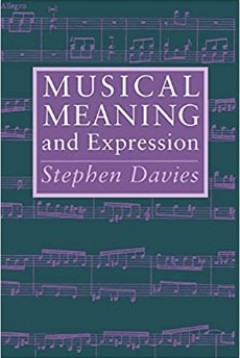
Musical Meaning and Expression
We talk not only of enjoying music, but of understanding it. Music is often taken to have expressive import―and in that sense to have meaning. But what does music mean, and how does it mean? Stephen Davies addresses these questions in this sophisticated and knowledgeable overview of current theories in the philosophy of music. Reviewing and criticizing the aesthetic positions of recent yea…
- Edisi
- First Published
- ISBN/ISSN
- 0-8014-2930-7
- Deskripsi Fisik
- xii + 417 pgs.; 23,5 cm.
- Judul Seri
- -
- No. Panggil
- 781.1 DAV m

Philosophy of Thomas Aquinas
- Edisi
- First Published
- ISBN/ISSN
- 0-415-00295-8
- Deskripsi Fisik
- 201 pgs.; 21,5 cm.
- Judul Seri
- -
- No. Panggil
- 180 PHI p
- Edisi
- First Published
- ISBN/ISSN
- 0-415-00295-8
- Deskripsi Fisik
- 201 pgs.; 21,5 cm.
- Judul Seri
- -
- No. Panggil
- 180 PHI p
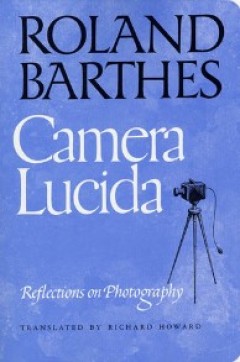
Camera Lucida : Reflections on Photography
A graceful, contemplative volume, Camera Lucida was first published in 1979. Commenting on artists such as Avedon, Clifford, Mapplethorpe, and Nadar, Roland Barthes presents photography as being outside the codes of language or culture, acting on the body as much as on the mind, and rendering death and loss more acutely than any other medium. This groundbreaking approach established Camera Luci…
- Edisi
- First Published
- ISBN/ISSN
- 978-0-374-52134-9
- Deskripsi Fisik
- 119 pgs.; 21 cm.
- Judul Seri
- -
- No. Panggil
- 770.1 BAR c
 Karya Umum
Karya Umum  Filsafat
Filsafat  Agama
Agama  Ilmu-ilmu Sosial
Ilmu-ilmu Sosial  Bahasa
Bahasa  Ilmu-ilmu Murni
Ilmu-ilmu Murni  Ilmu-ilmu Terapan
Ilmu-ilmu Terapan  Kesenian, Hiburan, dan Olahraga
Kesenian, Hiburan, dan Olahraga  Kesusastraan
Kesusastraan  Geografi dan Sejarah
Geografi dan Sejarah